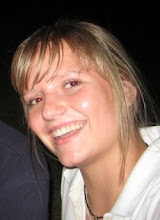Orality’s tendency to be aggregative rather than analytic, or its “formulary baggage which high literacy rejects as cumbersome and tiresomely redundant because of its aggregative weight (Ong, 38).”
The oral tradition creates “formulary expressions” in order to organize and keep track of things which might be forgotten otherwise. In Tristram, Toby is always, except for his introduction, referred to by the narrator as “my uncle Toby,” and never just as “Toby,” or “my uncle.” This was originally, says Ong, because “once a formulary expression has crystallized, it had best be kept intact. Without a writing system, breaking up thought—that is, analysis—is a high-risk procedure (Ong, 39).” Sterne employs it in his novel, perhaps not consciously, in an attempt to recreate the sense of orality that has been lost with the emergence of typography.

No comments:
Post a Comment